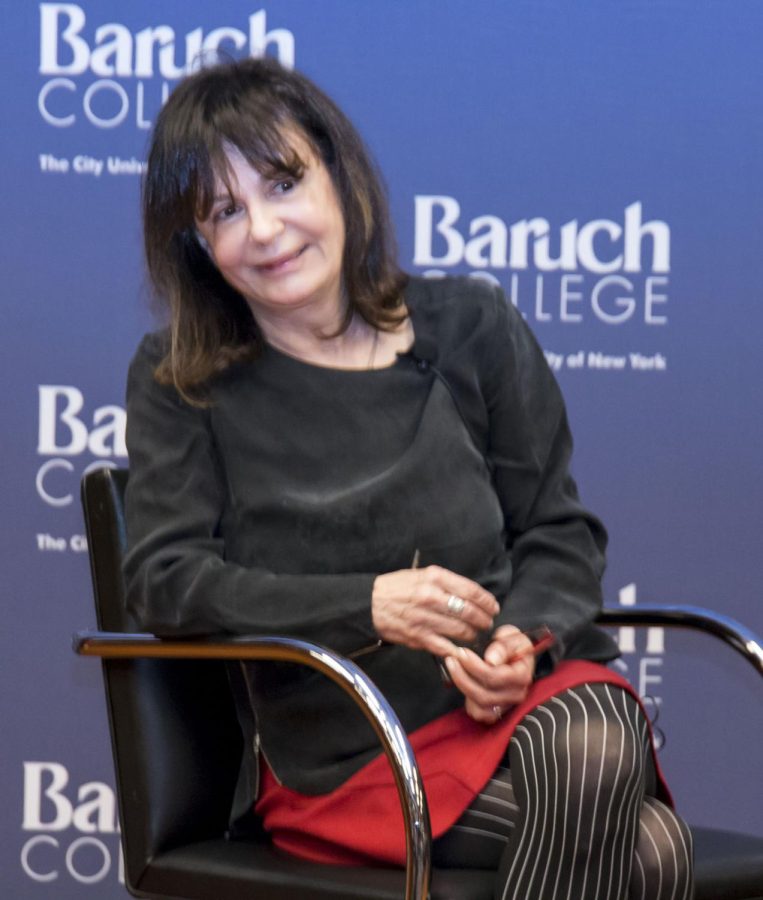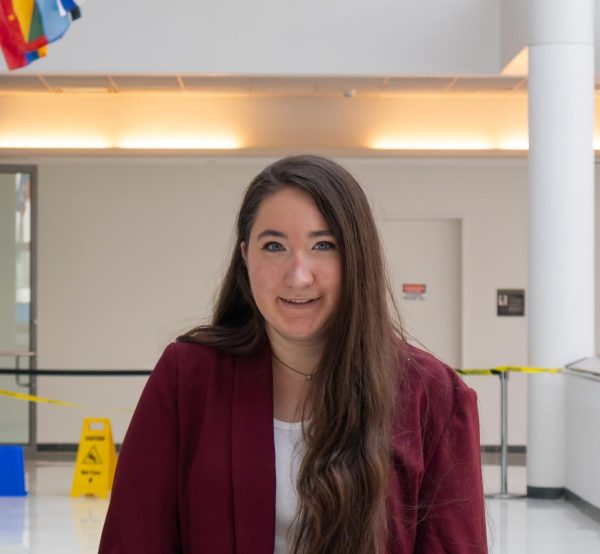Harman writer-in-residence talks writing inspiration and journey at event
April 29, 2022
The spring 2022 Harman Writer-In-Residence, Ersi Sotiropoulos, joined Dr. Karen Emmerich of Princeton University in conversation with associate professor of English Christina Christoforatou for a Harman program event on April 7.
Sotiropoulos has published more than a dozen works of fiction and poetry and won Greece’s National Book Award twice, the Greek Book Critics’ Award and the Athens Academy Prize. Her novel “What’s Left of the Night” won the 2017 Prix Méditerranée Étranger in France and its English translation, by Emmerich, won the 2019 National Translation Award.
In the event, the author began by thanking the Harman Program for bringing her all the way from Greece. She also applauded her students.
“My biggest joy here has been my students, they are amazing,” Sotiropoulos said.
She discussed her writing journey and how she first found the balance she needed to become the talented and renowned writer she is today, calling writing a “gesture that restores harmony.”
Sotiropoulos also explained the power of writing to explore ideas that go beyond the limits of ordinary experience and said that she often explores the idea of the reverse of what we consider as reality in her work.
“Literature traverses the continent of the unknown,” she said.
The author also stressed her dismay at the literary world’s focus on the pursuit of perfection and the commodification of literature.
“Masterpieces, great works, have faults, they are not perfect and sometimes I am afraid that literature is going towards a corporate world,” she said.
In a separate interview with The Ticker, Sotiropoulos echoed these sentiments.
“You go through failure, there are many aborted attempts, and you have to persist and to persist until and you cannot go just because you would like to see your name published without work,” she said.
As a writer, Sotiropoulos said that she prioritizes authenticity. Her writing process is organic and not bound by deadlines.
“I’m not a writer that makes a schedule where they can finish a novel in one year and so there are a lot of doubts and hesitation at the beginning until I start feeling that the piece has found its real, alive voice,” she said. “The most important thing is the voice and that the voice is true.”
Through the moments of hesitation, she said she values perseverance. When she faces parts of the writing process where she feels stuck, she takes time to ground herself in life outside of the work.
“Go to have a drink, read other books, see your friends and don’t think about it,” Sotiropoulos said. “Don’t look at your manuscript at all. Even if you leave it forgotten for two, three months, six months, sometimes a year and actually you didn’t deal with it, in an unconscious way that continues working within you.”
She draws on her experiences and interactions with other art throughout the writing process, using it as a source of underlying inspiration.
“I rely on inspiration after I have started working, then inspiration works in a way that is not evident to you,” she said. “It’s all yourself. It’s your subconscious, your experience, the music you love, poems you have read. They will convey themselves.”
Teaching her students in the Harman program also showed her a lot about her students’ mindset and evolution.
“I learned a lot about the way they are thinking at this age,” Sotiropoulos said. “I have seen them progressing much more than other classes I had for research here in Greece that were people in their early 30s already published. I have experienced a lot through the exchange with them.”







